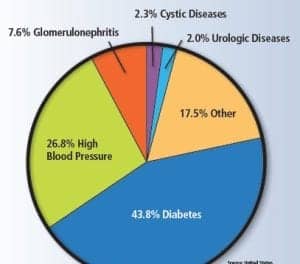 XIFIN Inc, San Diego, has co-authored a new white paper outlining constraints with the existing diagnostic coverage determination and evidence standards used today for the reimbursement, development, and use of clinical laboratory tests–and, the urgent need to evaluate value-based alternatives.
XIFIN Inc, San Diego, has co-authored a new white paper outlining constraints with the existing diagnostic coverage determination and evidence standards used today for the reimbursement, development, and use of clinical laboratory tests–and, the urgent need to evaluate value-based alternatives.
The white paper, titled “A Pay-for-Value, Data-Drive Approach for the Coverage of Innovative Genetic Tests,” co-authored by bioTheranostics Inc., Life Technologies Inc, and XIFIN explores how changing from the current highly regulated and over-taxed fee-for-service model to a market-driven, risk-sharing, pay-for-value model involving payors, providers, physicians, and patients, will reduce overall costs, decrease time to market, increase quality of care, and increase the ROI for developing cutting edge diagnostics.
The authors are Richard Ding, CEO, bioTheranostics Inc; Paul Billings, MD, PhD, CMO, Life Technologies Corp; and from XIFIN, Lâle White, CEO, Rina Wolf, VP of commercialization strategies, and David Lorber, PhD, director of business development.
Click here to download the white paper.
The proposed value-based model outlined in the white paper advances a coverage determination process that encourages innovation in the dynamic molecular diagnostics environment. The technology-enabled coverage determination process presents a unique opportunity for a self-regulating system that inherently optimizes patient outcomes, payor cost containment, and developer recovery on investment, according to the authors.
Diagnostics influence an estimated 80% of medical decisions, so although they represent a tiny fraction of total health care spending, they have the greatest potential to reign in burgeoning health care costs ($2.9 trillion and growing) through the increasing use of molecular diagnostic tests that support precision medicine. Changes in reimbursement and coverage are urgently needed to meet the growing demand for both optimized health care outcomes and the alignment of incentives for all parties in the US health care system.
Genetic tests are evolving so rapidly that they face the very real possibility of obsolescence before receiving coverage determinations under the current assessment guidelines. For investors, this means that in many cases the risk-adjusted ROI for molecular diagnostics may approach zero, a situation that is likely to have a chilling effect on funding for personalized medicine as well as patient outcomes.
[Source: XIFIN]



